Related Research Articles

John Donne was an English poet, scholar, soldier and secretary born into a recusant family, who later became a cleric in the Church of England. Under royal patronage, he was made Dean of St Paul's Cathedral in London (1621–1631). He is considered the preeminent representative of the metaphysical poets. His poetical works are noted for their metaphorical and sensual style and include sonnets, love poems, religious poems, Latin translations, epigrams, elegies, songs, and satires. He is also known for his sermons.

John Dryden was an English poet, literary critic, translator, and playwright who was appointed England's first Poet Laureate in 1668.

The Battle of Cunaxa was fought in the late summer of 401 BC between the Persian king Artaxerxes II and his brother Cyrus the Younger for control of the Achaemenid throne. The great battle of the revolt of Cyrus took place 70 km north of Babylon, at Cunaxa, on the left bank of the Euphrates. The main source is Xenophon, a Greek soldier who participated in the fighting.

Heraclea Pontica, known in Byzantine and later times as Pontoheraclea, was an ancient city on the coast of Bithynia in Asia Minor, at the mouth of the river Lycus. It was founded by the Greek city-state of Megara in approximately 560–558 BC and was named after Heracles who the Greeks believed entered the underworld at a cave on the adjoining Archerusian promontory. The site is now the location of the modern city Karadeniz Ereğli, in the Zonguldak Province of Turkey.

Izaak Walton was an English writer. Best known as the author of The Compleat Angler, he also wrote a number of short biographies including one of his friend John Donne. They have been collected under the title of Walton's Lives.
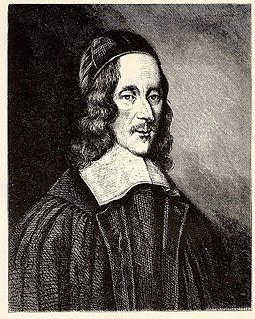
George Herbert was a Welsh poet, orator, and priest of the Church of England. His poetry is associated with the writings of the metaphysical poets, and he is recognised as "one of the foremost British devotional lyricists." He was born into an artistic and wealthy family and largely raised in England. He received a good education that led to his admission to Trinity College, Cambridge, in 1609. He went there with the intention of becoming a priest, but he became the University's Public Orator and attracted the attention of King James I. He served in the Parliament of England in 1624 and briefly in 1625.
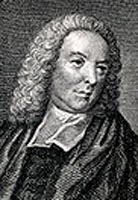
Edward Young was an English poet, best remembered for Night-Thoughts, a series of philosophical writings in blank verse, reflecting his state of mind following several bereavements. It was one of the most popular poems of the century, influencing Goethe and Edmund Burke, among many others, with its notable illustrations by William Blake.

Thomas Ken was an English cleric who was considered the most eminent of the English non-juring bishops, and one of the fathers of modern English hymnody.

Andrew John Partridge is an English singer, songwriter, and record producer who founded the rock band XTC. He and Colin Moulding each acted as a songwriter and frontman for XTC, with Partridge writing and singing about two-thirds of the group's material. While the band were a formative punk group, Partridge's music drew heavily from 1960s songwriters, and his style gradually shifted to more traditional pop, often with pastoral themes. The band's only UK top 10 hit, "Senses Working Overtime" (1982), was written by Partridge.
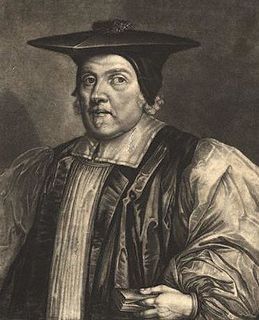
Richard Sterne was a Church of England priest, Archbishop of York from 1664 to 1683.
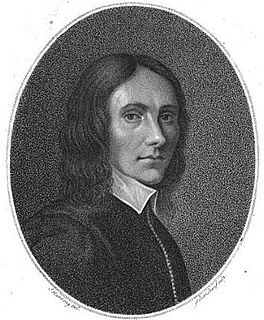
John Oldham was an English satirical poet and translator.
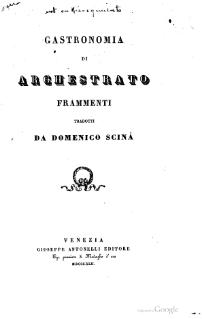
Archestratus was an ancient Greek poet of Gela or Syracuse, in Sicily, who wrote some time in the mid 4th century BCE, and was known as "the Daedalus of tasty dishes". His humorous didactic poem Hedypatheia, written in hexameters but known only from quotations, advises a gastronomic reader on where to find the best food in the Mediterranean world. The writer, who was styled in antiquity the Hesiod or Theognis of gluttons, parodies the pithy style of older gnomic poets; most of his attention is given to fish, although some fragments refer to appetizers, and there was also a section on wine. His poem had a certain notoriety among readers in the 4th and 3rd centuries BCE: it was referred to by the comic poet Antiphanes, by Lynceus of Samos and by the philosophers Aristotle, Chrysippus and Clearchus of Soli. In nearly every case these references are disparaging, implying that Archestratus's poem—like the sex manual by Philaenis - was likely to corrupt its readers. This attitude is exemplified in the Deipnosophistae with citations of Chrysippus:
This utterly admirable Chrysippus, in On Goodness and Pleasure book V, talks of: Books like Philaenis’s, and the Gastronomy of Archestratus, and stimulants to love and sexual intercourse, and then again slave girls practised in such movements and postures and specialising in the subject; and further on he says: studying all this and getting the books about it by Philaenis and Archestratus and the other writers of such stuff; and in book VII he says: one is therefore not to study Philaenis, or the Gastronomy of Archestratus, with the expectation of improving one’s life! Clearly, in quoting this Archestratus so often, you people have filled our banquet with indecency. Is there anything calculated to corrupt that this fine poet has failed to say?
Sir James Melville (1535–1617) was a Scottish diplomat and memoir writer, and father of the poet Elizabeth Melville.

The Compleat Angler is a book by Izaak Walton. It was first published in 1653 by Richard Marriot in London. Walton continued to add to it for a quarter of a century. It is a celebration of the art and spirit of fishing in prose and verse.
Clearchus of Soli was a Greek philosopher of the 4th–3rd century BCE, belonging to Aristotle's Peripatetic school. He was born in Soli in Cyprus.

"Senses Working Overtime" is a song written by Andy Partridge of the English rock band XTC, released as the lead single from their 1982 album English Settlement. He based the song on Manfred Mann's "5-4-3-2-1" (1964). The album and single became the highest-charting records XTC would ever have in the UK, peaking at number five and number 10, respectively.

Paternoster Row was a street in the City of London that was a centre of the London publishing trade, with booksellers operating from the street. Paternoster Row was described as "almost synonymous" with the book trade. It was part of an area called St Paul's Churchyard.
Nationality words link to articles with information on the nation's poetry or literature.
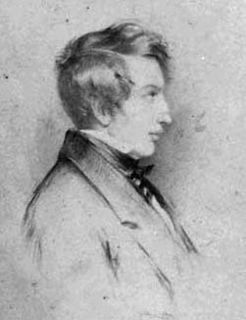
Duncan Farquharson Gregory was a Scottish mathematician.
Clearchus was a Roman politician who was consul of the Roman Empire in 384 AD.
References
- 1 2 3 One or more of the preceding sentences incorporates text from a publication now in the public domain : Chisholm, Hugh, ed. (1911). "Chalkhill, John". Encyclopædia Britannica . Vol. 5 (11th ed.). Cambridge University Press. p. 807.